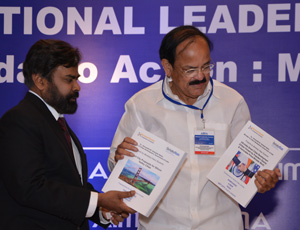A MORE TRANSPARENT AND COST-EFFECTIVE SOLUTION?
Another disruption is the idea of smart cities in general. Darwin believes involving private businesses in community and traditional government issues will create a more transparent and accountable process. “The competition for the bids on various projects will now be much more transparent with an open data and open business model,” Darwin explains. “Everyone has a say in it. Before, there were closed doors and kickbacks and now everyone is going to hold others accountable and they can do it cost-efficiently.”
Ideally citizens would be able to see the bidding process and be able to interact with decision makers on which companies would be used to make the cities smarter. Darwin also believes citizen involvement will lead to companies with outcome-based business models. “I think more and more players and younger companies from around the world will come to bid to provide more lean technology – technology that does the same job as older companies but at a better cost,” Darwin says.

Solomon Darwin presenting the student projects with Venkaiah Naidu, India’s minister of urban development. Courtesy photo
‘THERE IS A GLOBAL AWARENESS OF PEOPLE MOVING TO CITIES NOW’
Other countries seem to support the smart cities concept. When Darwin travelled to India to present his students’ work at the Innovation Round Table, a representative from Finland approached him. “He asked if my students from Berkeley would come to Finland and help them develop smart cities,” says Darwin with pride exuding from his voice.
“There is a global awareness of people moving to cities now,” Darwin says. “It’s why cities are being so important. They give a sense of community, belonging, and pride. They give security and fun. That’s why so many people are moving to cities and San Francisco. People feel like they belong in community with others. And that movement is going to continue because that’s the way we are.”
Darwin says the course will continue to focus mainly on India for its international component. And, for now, the course is scheduled for the next five years.
PIQUING SOME PAIN-POINTS
“The students learned a lot,” Darwin says. But that did not happen without some pain-points. “There is a lot of anxiety and frustration and challenges in this course and others I teach,” continues Darwin. “It’s because the students want to find a solution. But innovation is messy. And students don’t always want to deal with mess. Students want directions on how to get the ‘A’. It’s a can of worms and there is no road or path and you need to deal with ambiguity. At the end of it all, they look back and say, ‘Gosh, I learned so much’. That’s what I feel a lot of students come away with, they don’t like the pain and stress but at the end they look back and like it. I’m not a popular professor, because I put them through a lot.”
Popular? Perhaps not. Unique? Most definitely. Darwin comes from a poor family in India. After receiving his bachelor’s degree from San Francisco State University, he founded a school and hospital for poor citizens in India.
“I believe a business model that does not create value for many is a useless model,” Darwin explains. “We always build products for rich people. There are about 1.5 billion rich people in the world. We never build products for the 5.5 billion poor people. Do you want to make a thousand by selling to one person or by selling a thousand products for a dollar each? Tech allows us to do a lot more for a lot less.”
Darwin, who has seen multiple students from the school he founded in India attend American universities, believes giving opportunity to all people could lead to wide-scale change. And smart cities play a role in the transformation.
“I have learned in my own experience to give people an opportunity and education,” says Darwin. “With that, they will transform society and the social landscape. Oakland, for example, can be transformed if we deal with the root and not just put Band-Aids on the issue. And the root is including basic things like food and education.”
DON’T MISS: A SUMMER CAMP IN BUSINESS BASICS











Questions about this article? Email us or leave a comment below.